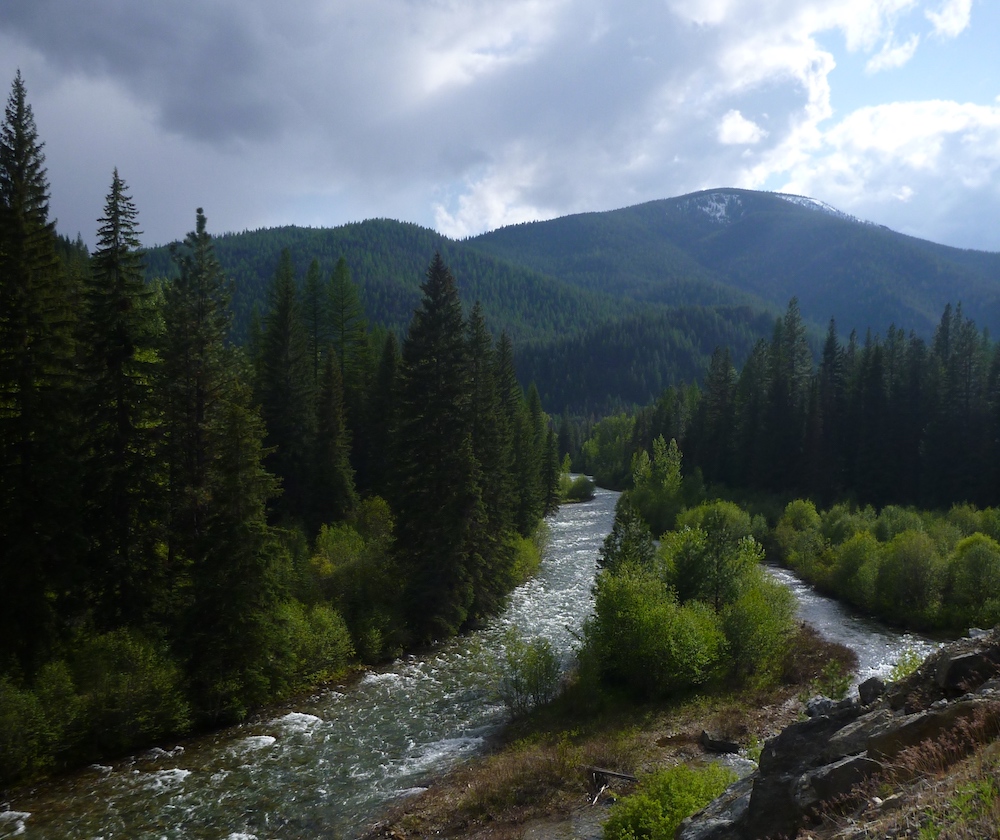
Montana Agency Proposes Paddling Prohibition on Fish Creek
Earlier this week Montana Fish Wildlife and Parks (MTFWP) proposed to ban paddling on the entire length of Fish Creek, located near the popular Alberton Gorge section of the Clark Fork River downstream of Missoula. The proposal is an element of the agency's Draft Fish Creek Recreation Strategy. Their rationale is extremely concerning, and the proposal marks a significant shift for a state that has a long history of strongly supporting the public freedom to float rivers. Paddlers across the state are encouraged to speak out to stop this overbearing proposal, as part of a public comment period open until October 20, 2023.
The agency’s rationale for the proposed floating prohibition centers on three primary factors. The agency claims that the prohibition is needed to prevent anglers from experiencing an “invasion of privacy” or “loss of solitude.” They claim that it is needed to prevent the removal of large woody debris (i.e. strainers). And they claim that since floating has not yet become a well-established practice on Fish Creek, banning it now will be easier than later. Each of these flawed claims mark an extreme reaction to issues that do not require a paddling ban to address.
Fish Creek is a natural and dynamic stream like many in Montana, and paddlers are more than capable of sustainably enjoying it without causing harm or conflicts. MTFWP has many management options to support sustainable use. MTFWP has shared that the issues they seek to address are related to oar-raft-based angling, not recreational paddling, yet their proposed remedy would impact all floaters. Oar rigs are heavy and difficult to portage around strainers compared to smaller boats more suited to small rivers like Fish Creek. MTFWP could simply prohibit the removal of wood – something they currently allow – to remedy their concerns. They could limit commercial use, fishing from a boat, or even craft types to remedy their concern. MTFWP acknowledges that they considered these options in response to public comments but offer no explanation for their selection of the most severe management restriction available. A wholesale floating ban is unnecessary and overbearing.
The agency also offers no evidence to support its proposed paddling prohibition. They do not offer data on how many people use the river, when they visit, what they are doing, or how visitation has changed over time. They do not offer data on what percentage of wood in the river has been removed, or to what effect. They do not offer evidence of user conflicts. Rather, they are proposing to ban paddling to proactively prevent future issues. The same logic could be applied to prohibit any form of recreation on any stream in Montana.
There is room on Montana’s rivers for traditional forms of enjoyment like angling, boating, and swimming. Taking away one of these forms of enjoyment from the public should be a grave last resort, after lighter management approaches have failed and harm is documented or reasonably foreseeable. The Montana Fish Wildlife and Parks’ proposal fails to meet this basic standard, and fails to honor the relationship that people have with Montana’s rivers. Just as troubling, the agency risks creating a new wedge among river enthusiasts that are tightly aligned and working hard on river conservation and access issues across the state.
We encourage river enthusiasts to let your opinions be known on the proposal to prohibit paddling on Fish Creek. Pages 44-45, and 65-66 in the Draft Fish Creek Recreation Strategy address the proposed paddling closure. We suggest respectful comments that say no to a paddling prohibition, and encourage other approaches to limiting the removal of wood from the river.
Review the project website and submit a public comment here.
The comment deadline is October 20, 2023.
